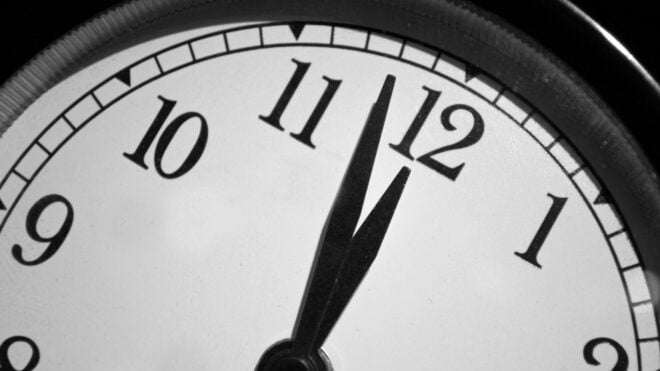
Usually, when we think of an acronym that has to do with our monthly cycle, it’s PMS — premenstrual syndrome. PMS comprises the symptoms that we have — like breakouts, bloating, and breast tenderness — right before our period comes. But just how much do you know about PMDD? It stands for premenstrual dysphoric disorder. Basically, it’s a more extreme form of PMS that occurs in 3% to 8% of women.
How can you know for sure if you have PMDD? For starters, if you have at least three of the symptoms listed here (especially if they feel close to unbearable), make an appointment to see your doctor. There are medications that you can take — ones that will help to suppress the production of your ovulation hormones so that your symptoms won’t be so difficult to deal with.
That way, you won’t have to dread each time your period rolls around.
Well, at least not as much as you’ve been doing.
1. Mood Swings
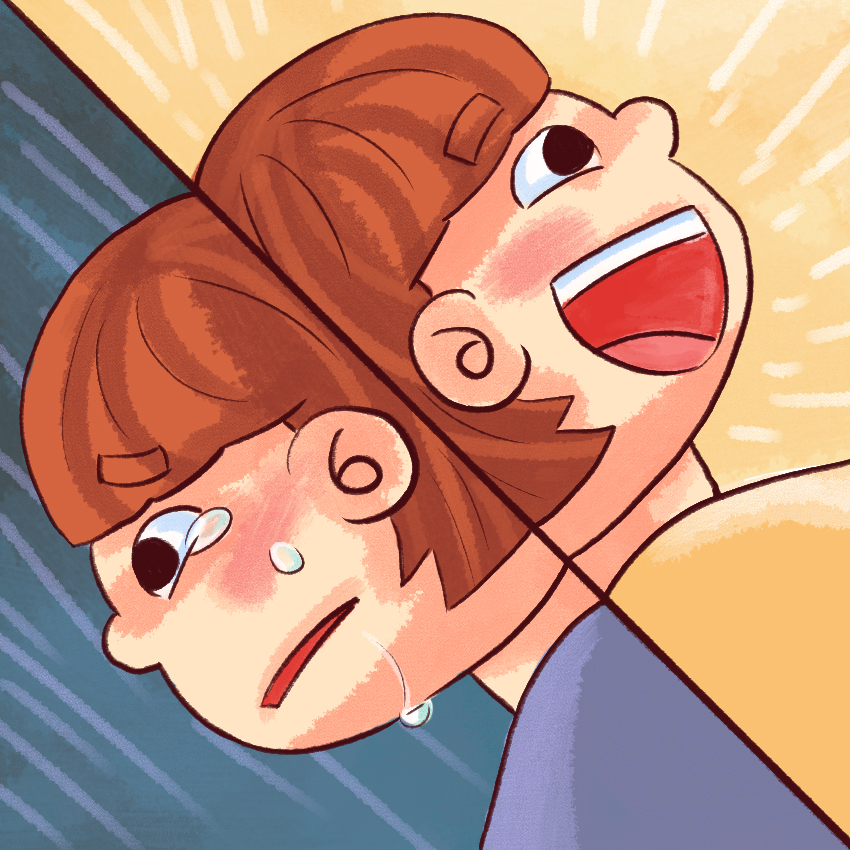
Because your hormones are a bit all over the place in the days leading up to your period, you might think that any kind of moodiness is normal, but that’s not altogether true.
Although some levels of irritability, anxiety, and hypersensitivity are nothing to be too alarmed about (make sure to eat healthy and take B-complex vitamins to make those feelings easier to bear), if every month brings feelings of depression, see your health care provider. Your doctor will need to do some testing to see if (1) you have PMDD, and (2) you should be prescribed antidepressants to treat it.
2. Headaches
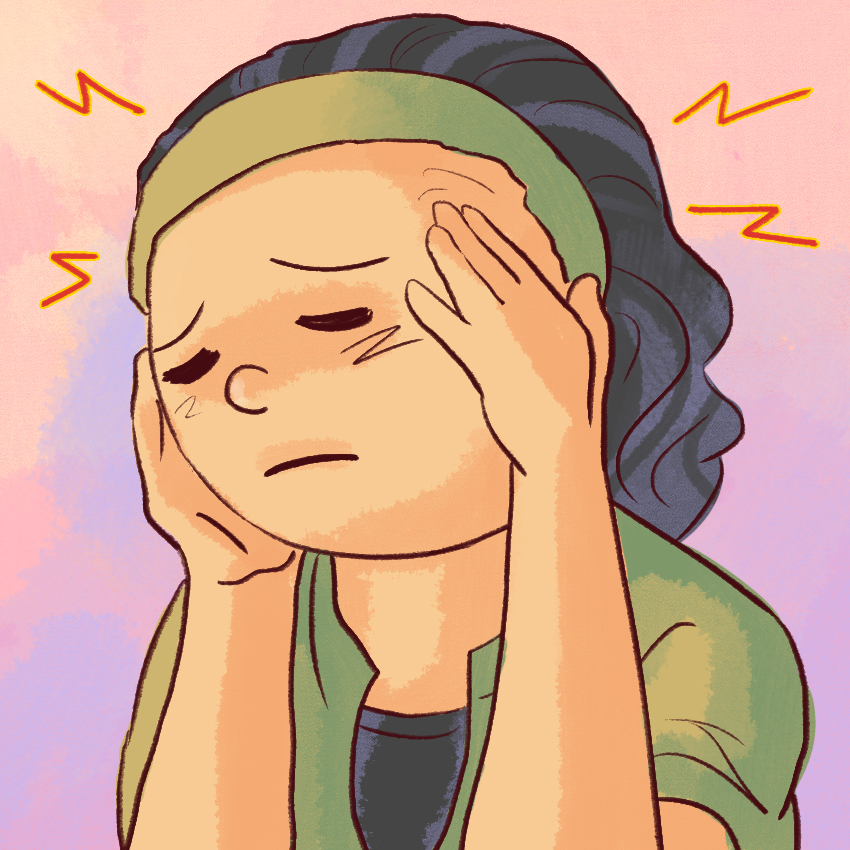
Another common symptom of PMDD is headaches. If they are minor, usually a couple of ibuprofen will take care of the pain. But if your discomfort is extreme, you might be experiencing what’s called a “menstrual migraine,” which is what happens when levels of estrogen and progesterone in your body drastically shift. Usually, an anti-inflammatory medication is needed to give you relief. Eating anti-inflammatory foods and drinking plenty of water can help, too.
3. Sleeplessness
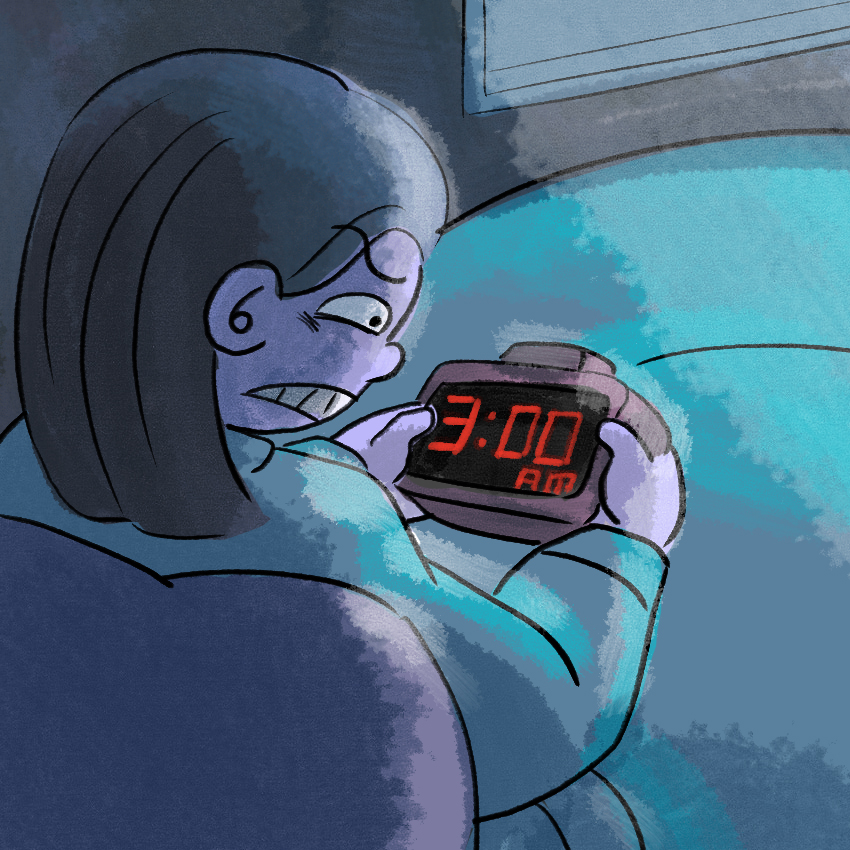
When you’re not feeling good, it’s hard to fall — and stay — asleep. At the same time, if you don’t get enough rest, it can weaken your immune system and make your PMDD so much worse.
Taking a magnesium, calcium, and zinc supplement can calm your nerves. Drinking some warm chamomile tea can soothe your symptoms and keep you calm. Putting a little lavender oil right underneath your nose can make it easier and faster to fall asleep.
If your sleeplessness seems more like insomnia, this is another reason to see a health care provider.
4. Menstrual Cramps
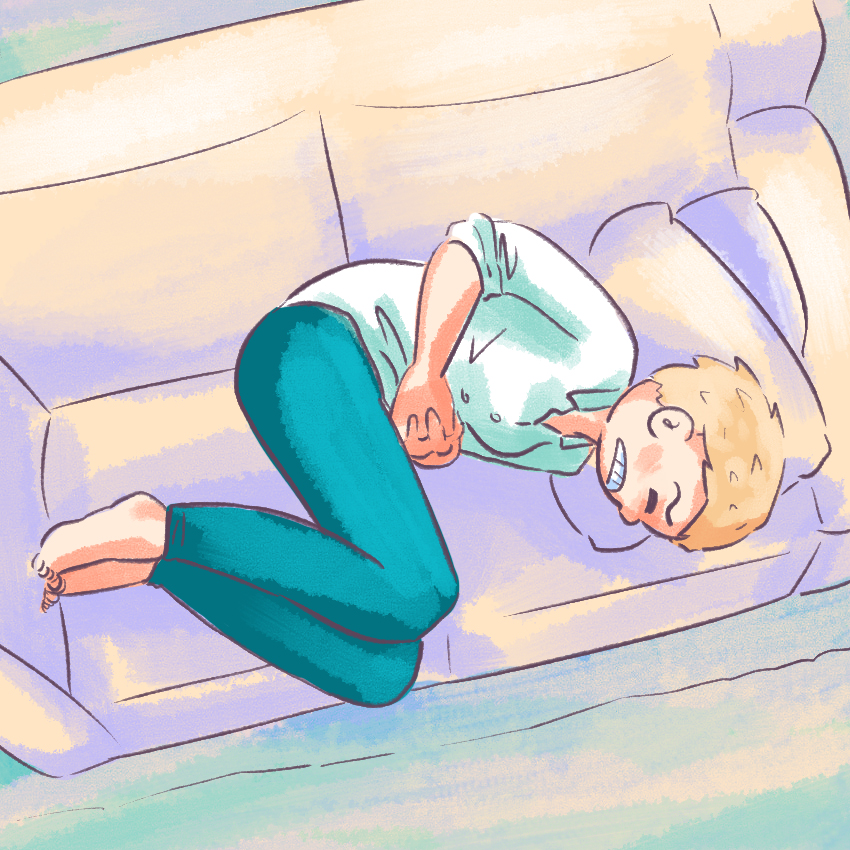
Menstrual cramps are what happen right before and during your menstrual cycle. They consist of pain that feels like a consistent throbbing or pulling in your abdomen that comes in preparation for you shedding the lining of your uterus.
Sometimes the cramping is minor, but in the case of PMDD, it can be so severe that you can’t go about doing your regular activities. It could also be accompanied by nausea and loose bowel movements.
If this is the case, you should see your doctor, who can advise you about how to make the cramps easier to handle. Your physician can also check to see if there is an underlying issue like endometriosis, fibroids, or pelvic inflammatory disease (PID).
5. Hot Flashes
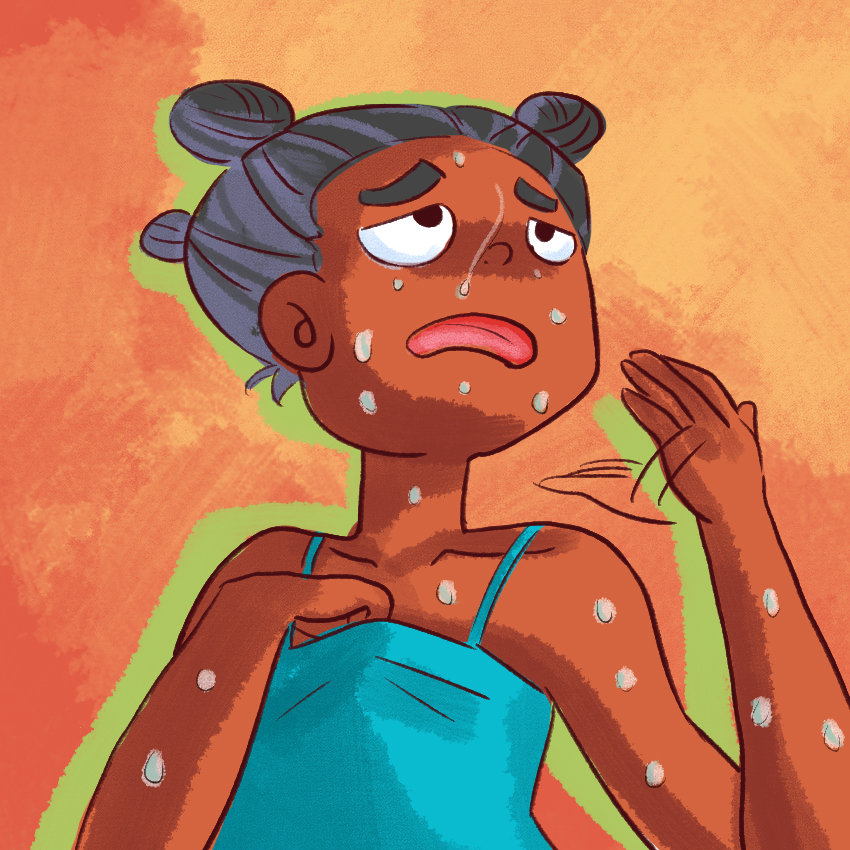
Typically, when most of us think of hot flashes, we think of women who are going through menopause. But there are other conditions that can lead to your blood vessels widening, causing you to feel hot and sweaty. One of them is PMDD.
If you do experience a hot flash, what should you do? Get cool, avoid spicy foods, stay hydrated, and more than anything else, calm yourself and relax. Although it might not feel like it at first, hot flashes (almost) always pass with time.
6. A Hard Time Concentrating
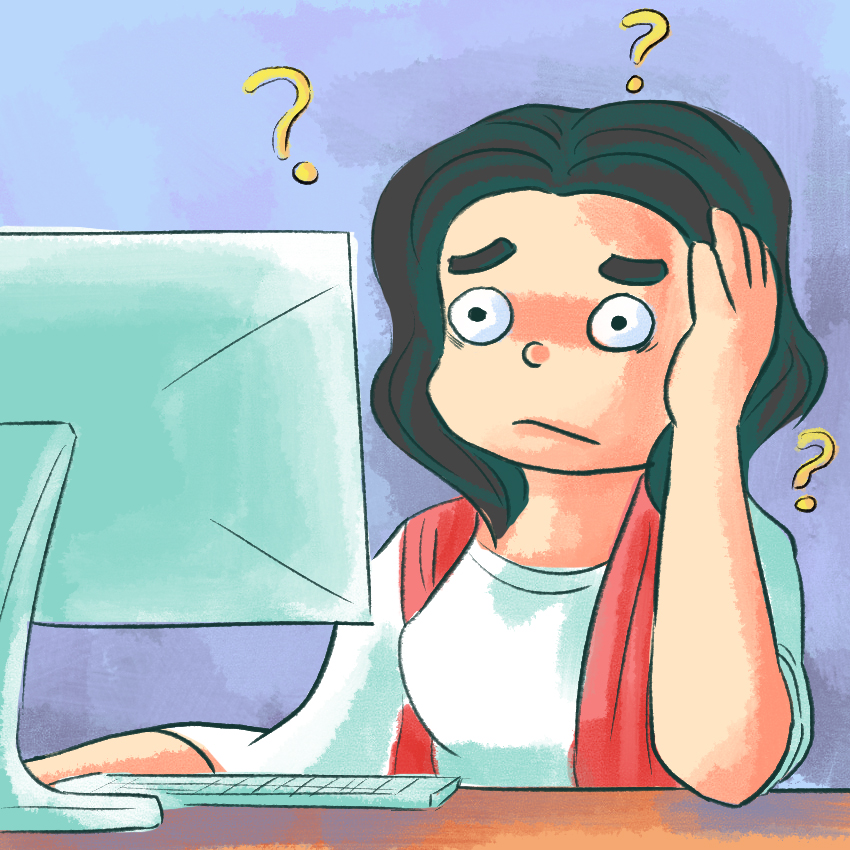
When you’re not feeling your best, it can be hard to focus enough to get through your day. If you’re having a hard time concentrating due to PMDD, lavender oil on your wrists can help to calm and center you, deep-breathing can relax you, and taking on just one task at a time (as opposed to multitasking) can actually help you to get more things done.
7. Breast Tenderness
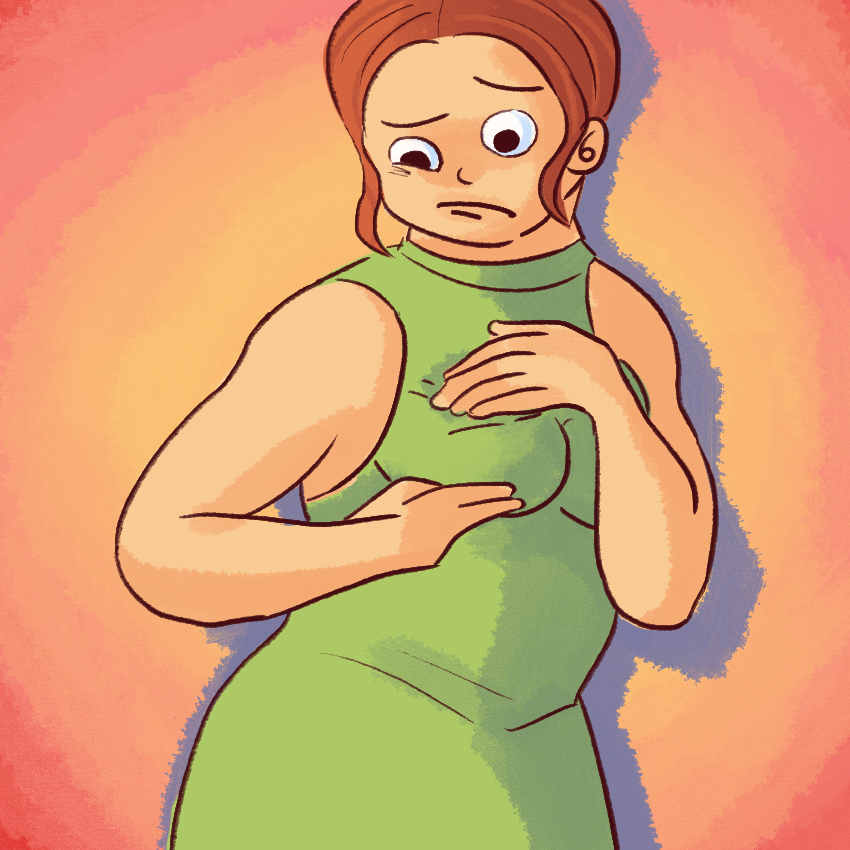
Another common symptom of PMS (and PMDD) is breast soreness. Did you know that there’s a medical term for it? It’s cyclical mastalgia, and it’s another response to your body’s hormones fluctuating in preparation for your menstrual cycle.
Although breast soreness can sometimes be uncomfortable, it’s not anything to worry about. It usually will pass over a couple of days (usually right before your cycle starts).
8. Feelings of Hopelessness
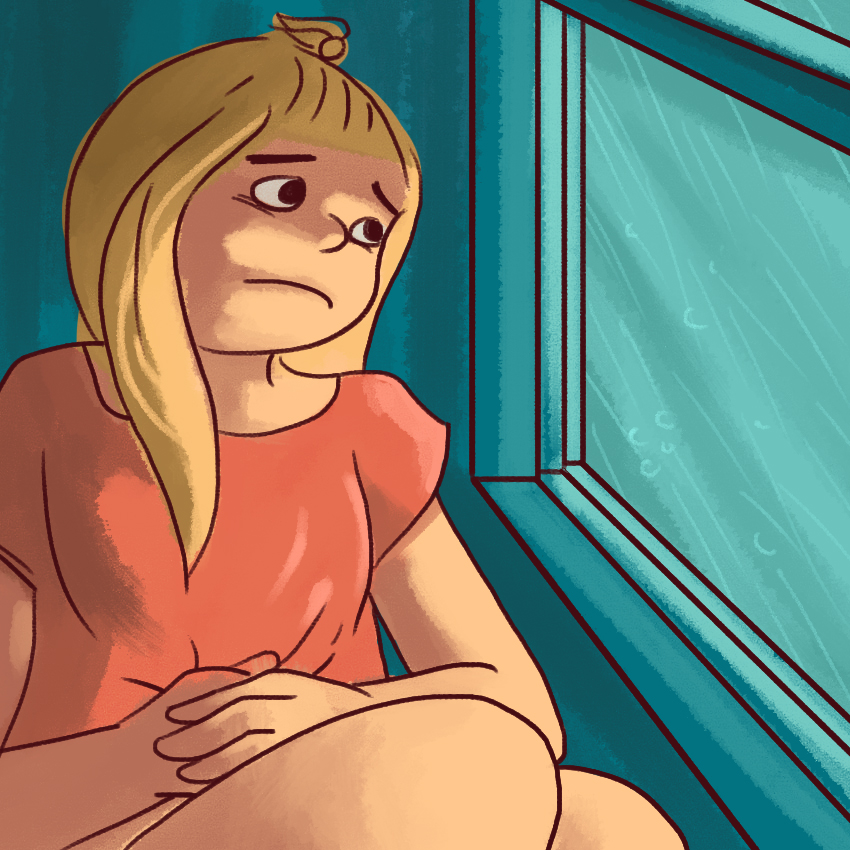
PMS can also bring with it moments (or days) of feeling a little low. But when you have PMDD, sometimes those feelings can become a lot more extreme — to the point where you feel sad, irritable, and possibly even depressed. In fact, some women end up being diagnosed with clinical depression, in part due to their PMDD.
If you feel depressed and you can’t seem to find much relief, don’t overlook it. See a medical professional and a therapist to receive counseling and establish a health regimen that will help to make you feel better.
9. A Loss of Appetite
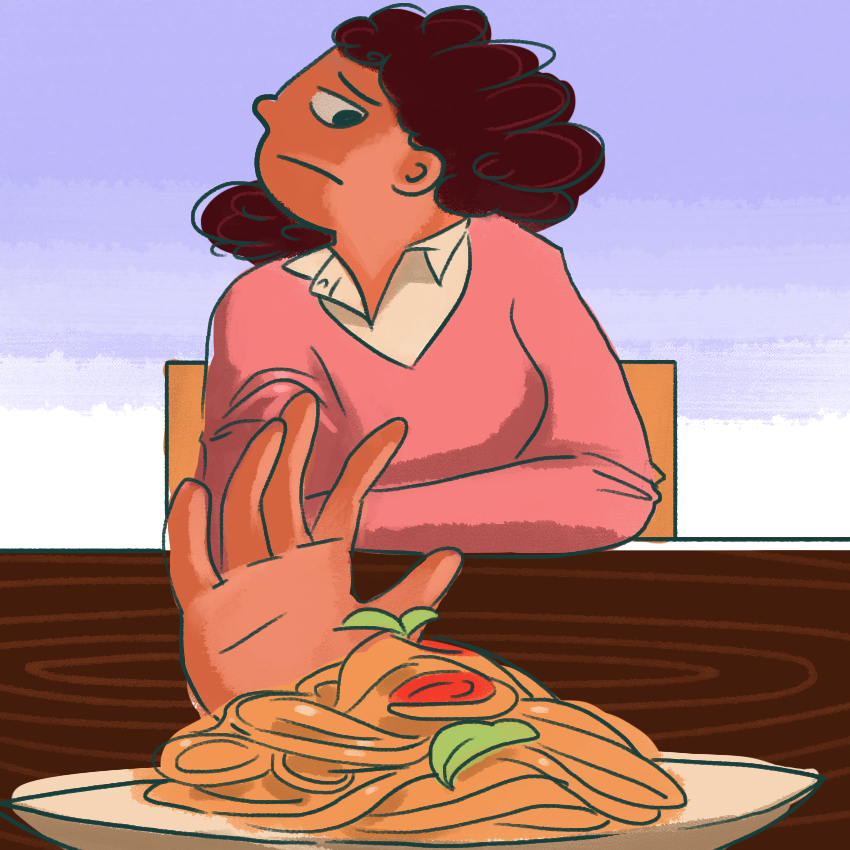
Speaking of clinical depression, one sign of having it is a loss of appetite for days at a time.
Eating is what helps to keep you healthy — mind, body, and spirit. Luckily, there are some things you can do if PMDD has you feeling like you don’t want to eat much. Snack on fresh fruits and veggies. Drink herbal tea. Also, eat the kinds of foods that can boost your energy levels like quinoa, blueberries, apples, spinach, and honey.
10. Social Withdrawal

Another sign of depression is extreme isolation. If you’re typically an outgoing individual, but during “that time of the month” you don’t want to be around people (at all) — and it happens every single month, and it’s paired with a loss of appetite and/or feelings of loneliness — this is something else that you shouldn’t try and “treat” on your own. See your doctor or a licensed therapist (both, if possible).
11. Joint Pain
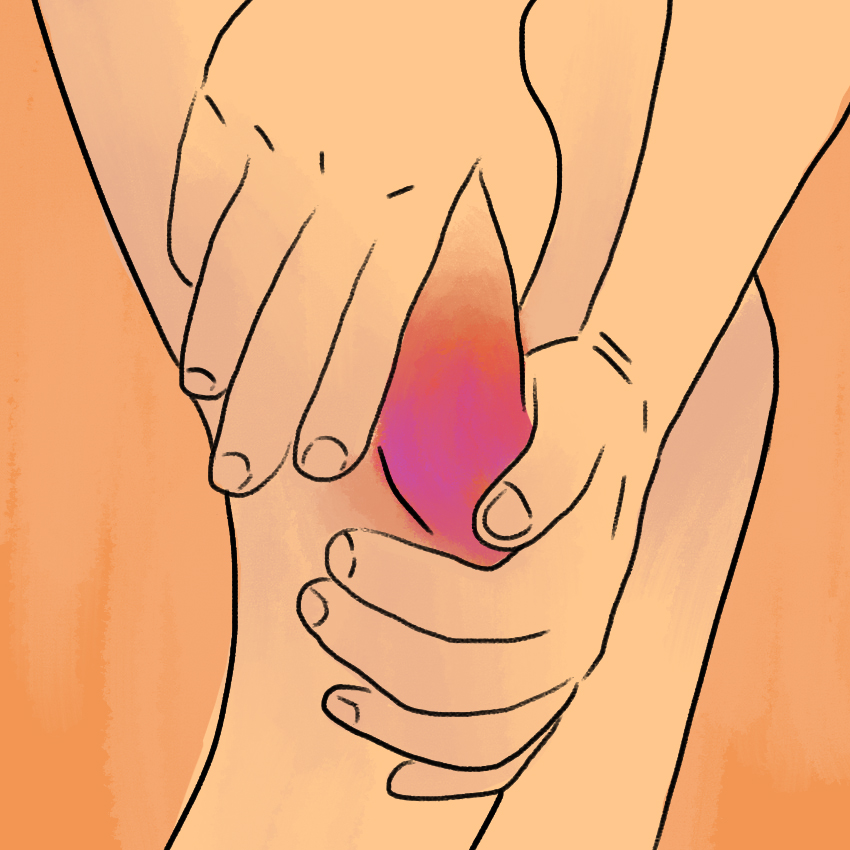
Are you usually bloated right before your cycle? You’re not alone. The shifts in progesterone and estrogen are why that happens, causing the fluids in your body to shift. As a result, that can put pressure on your muscles and joints, resulting in discomfort, if not flat-out pain.
Is there anything you can do to avoid feeling joint pain? Avoid eating salty foods, drink lots of fluids, and eat foods like salads, sweet potatoes, and avocados; they’re rich in potassium, and studies show that potassium can help to alleviate bloating.
12. Unexplained Anger
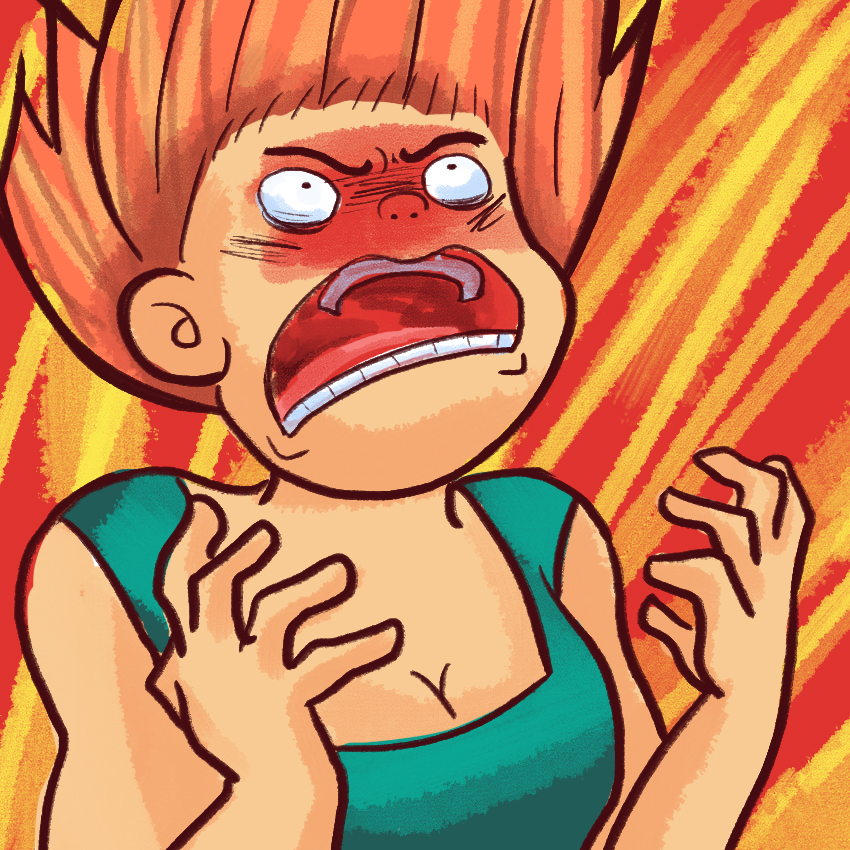
PMS can sometimes make us really “touchy.” Irritated is one thing. Uncontrolled rage is another. If your time of the month brings on feelings of anger that you can’t seem to find a reason for, this might be one more heads up that you have PMDD.
13. Random Food Cravings

During your period, you end up losing blood. Blood carries nutrients within it, so it makes sense that with PMS and PMDD, you might have some random food cravings from time to time.
If PMS or PMDD causes your diet to totally get out of control, monitor how much sugar and salt you eat, cut “junk food” portions in half, drink plenty of water, and limit your caffeine intake. Caffeine is a diuretic that can dehydrate you and actually make your PMS or PMDD symptoms worse.
14. Extreme Fatigue
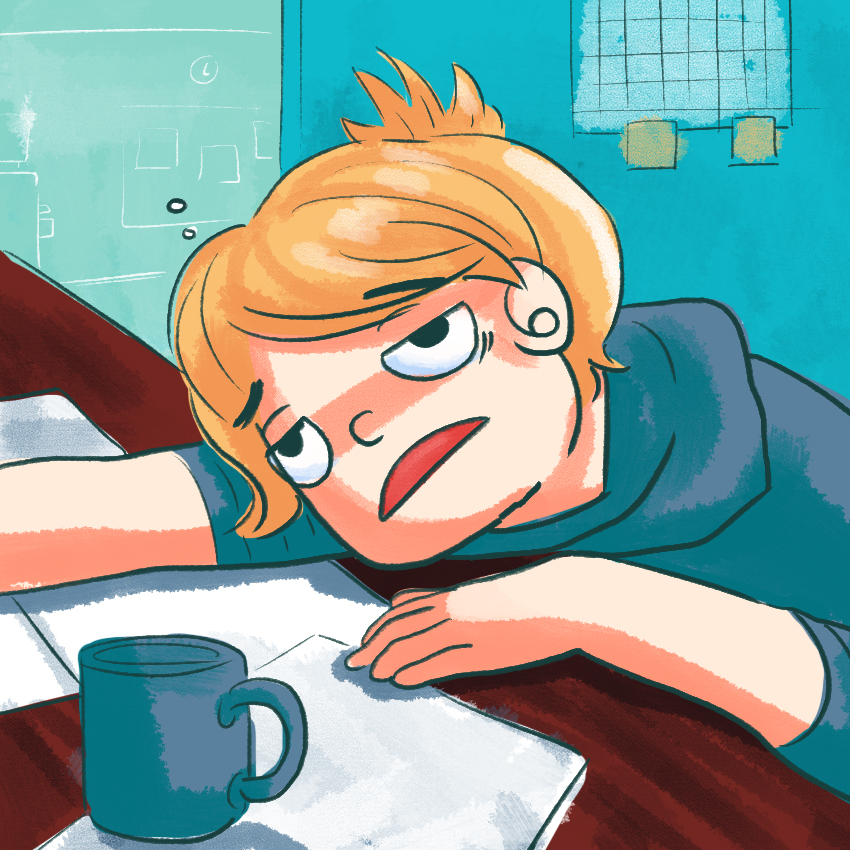
Whew. Just reading all of this is enough to make you feel at least a little worn out. That’s why it’s totally understandable why PMS and especially PMDD can make you feel quite fatigued.
Cutting back on sugar and carbs, eating a lot of protein, and having small healthy snacks throughout the day are all ways to get your energy levels back up. But if your PMDD has you feeling like there’s at least one week a month when you can barely get out of bed, visit your doctor to get your iron and hormone levels checked.
Sometimes fatigue can be a “red flag” of another underlying cause — the kind that you shouldn’t self-diagnose. (As with the case with PMDD.)



